Hello Hive
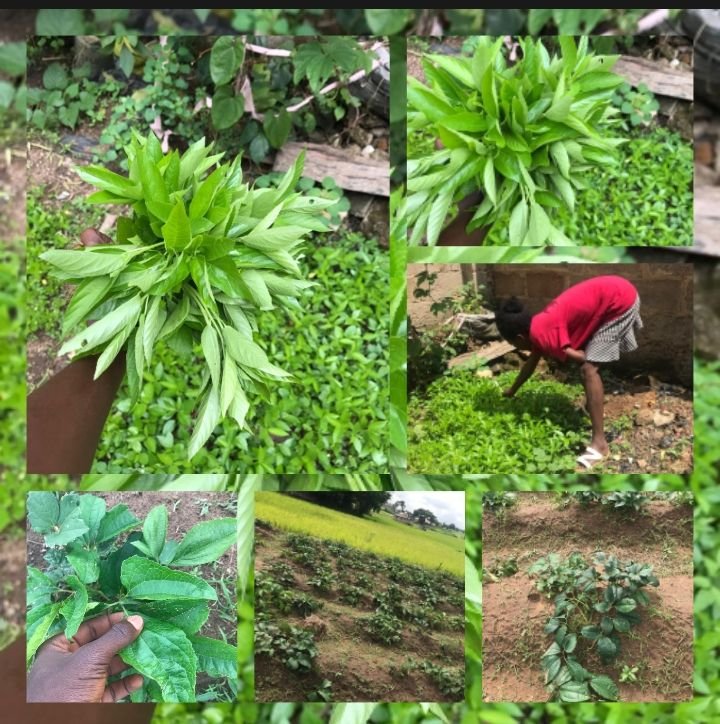
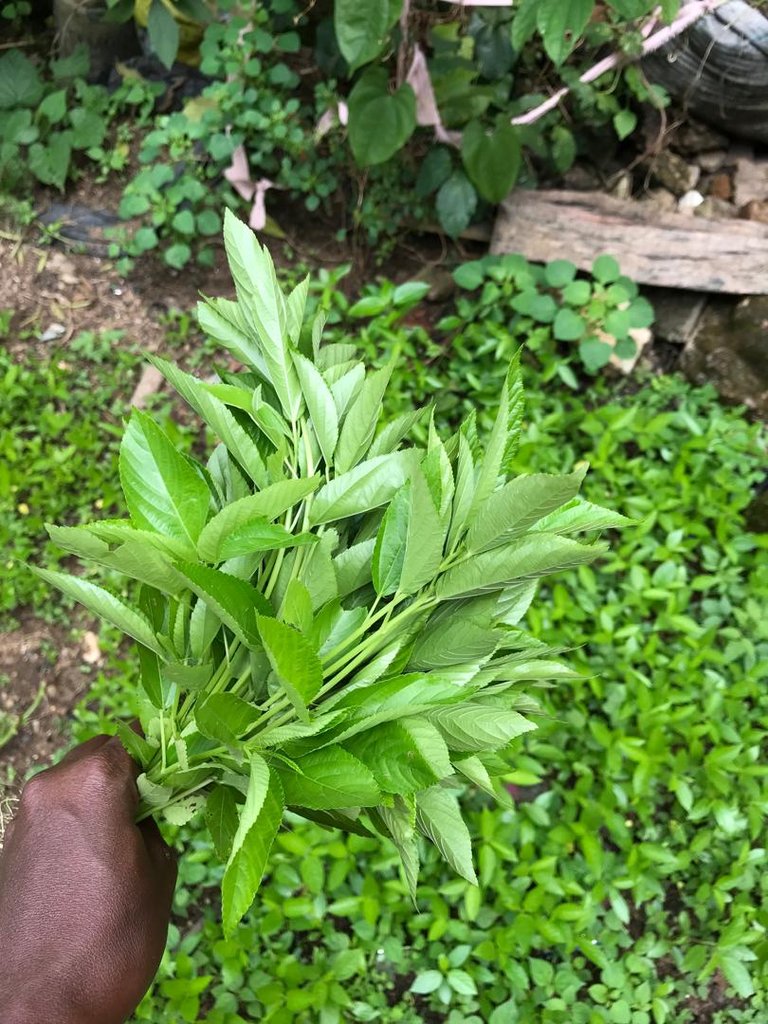
Most of these vegetables have a cycle span in which their leaves stay edible and healthier for food once they begin to exist, close to 3 months, and beyond they start preparing to produce seeds, and at that stage they are no longer edible for soup.
Since none of my neighbors had needs for jute mallow yesterday and the ones I planted have spent a longer time in the garden, my sister suggested that I harvest and sell them.
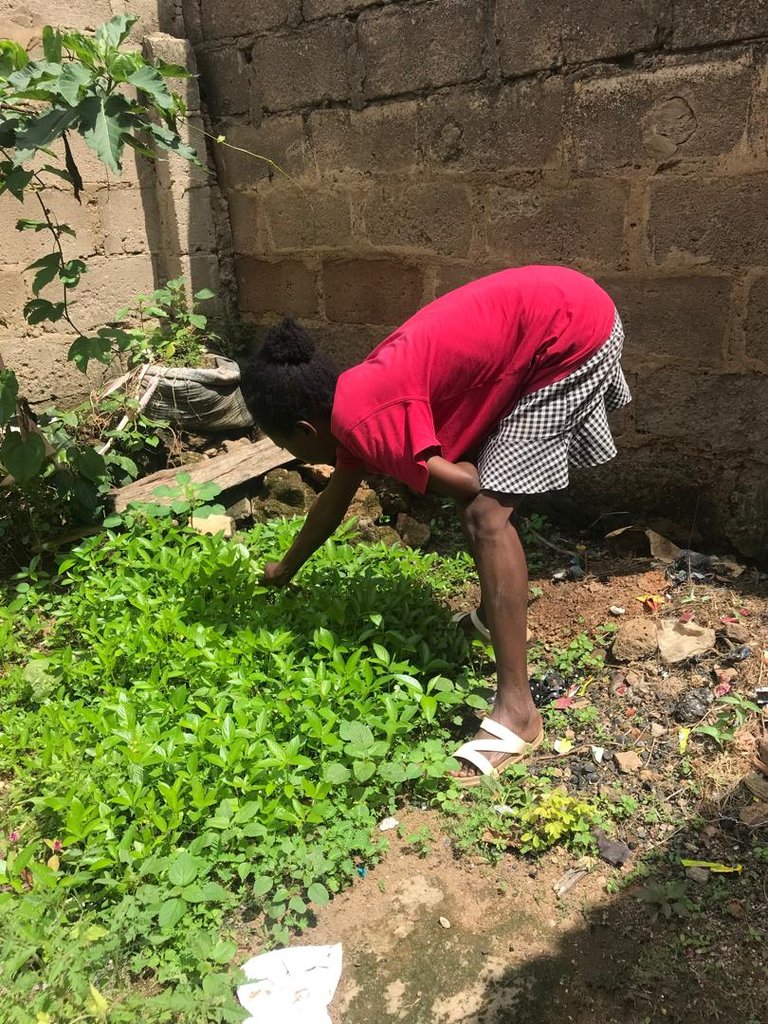
It sounded funny to me, but I followed her advice, plugged off the jute mallow, and had them tied like this. We had about 10 bundles of it, and guess how much that went for?
They were sold for $0.12/N200 each; selling the 10 bundles has me $1.21/N2000. My niece insisted on hawking it around the neighborhood even though this is an act I am always against and wouldn't let our children engage in it. Before she could take any steps further, we have families buy off the veggies to make their dinner with them.
The money received is quite enough for me to use in purchasing new seeds for replanting. There is literally not much profit in growing jute mallow, and I wonder how those who grow this for sale at the market make a living from it.
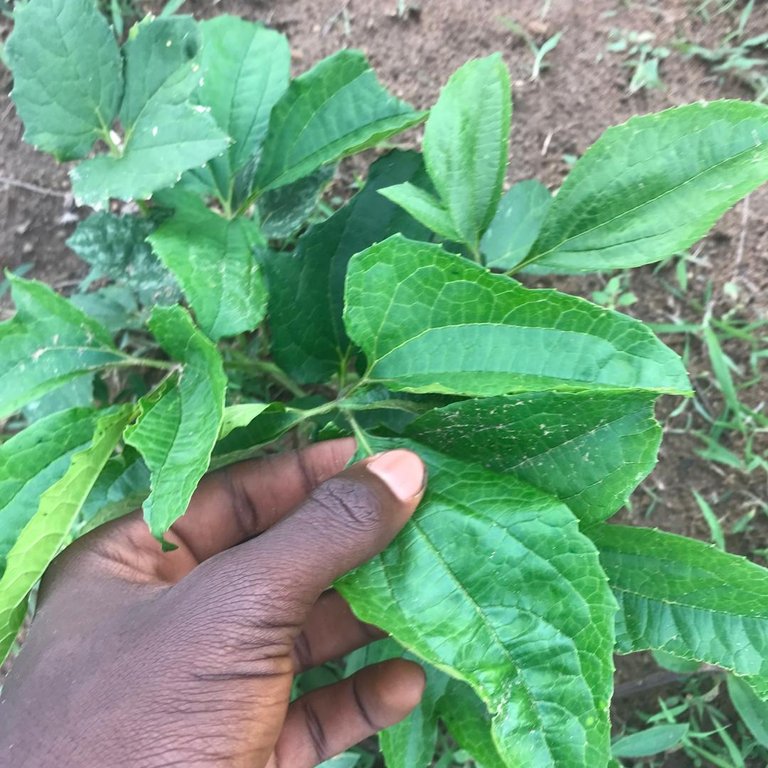
y
The other of my friends who are in the business of growing and selling vegetables at the market, Fluted Pumpkins, are preferable and give better income and profit. One can make a lot of profit growing fluted pumpkins. The reasons are not far-fetched.
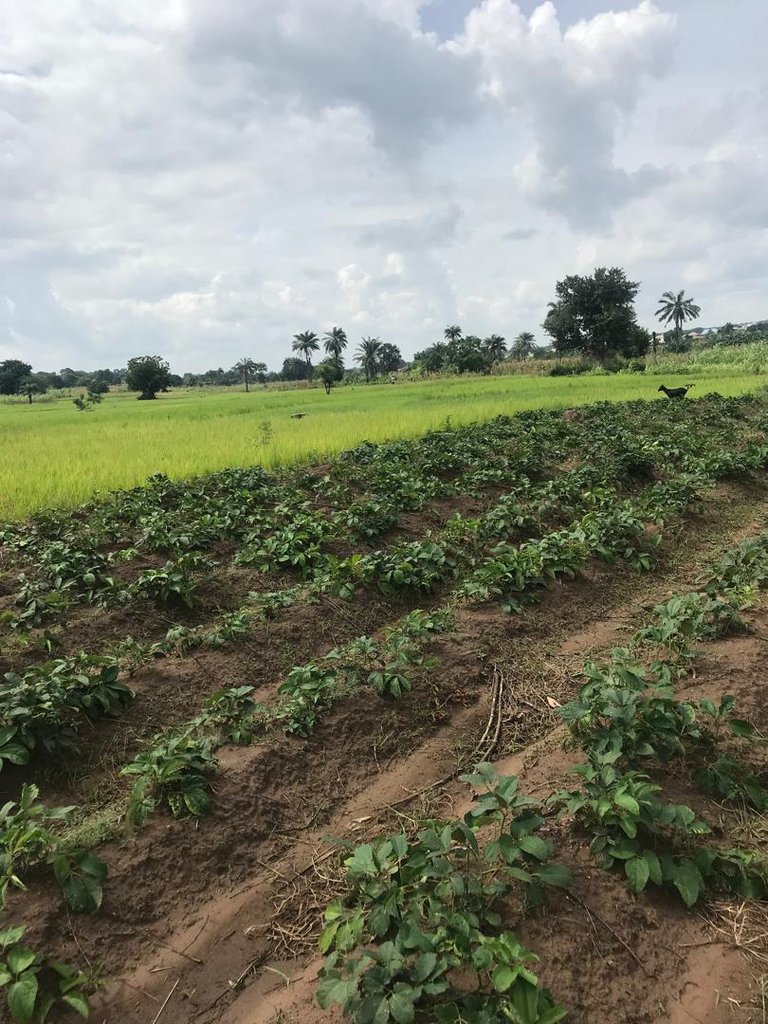
Fluted pumpkins are not an annual crop and can last for a period of 2-3 years; the leaves regenerate upon every harvest. Meaning that harvest can be done multiple times.
While my late mom has been a fluted pumpkin farmer and has passed down that knowledge and experience to me, I have equally shared that with some of my neighbors here who are currently engaged in the fluted pumpkin business.
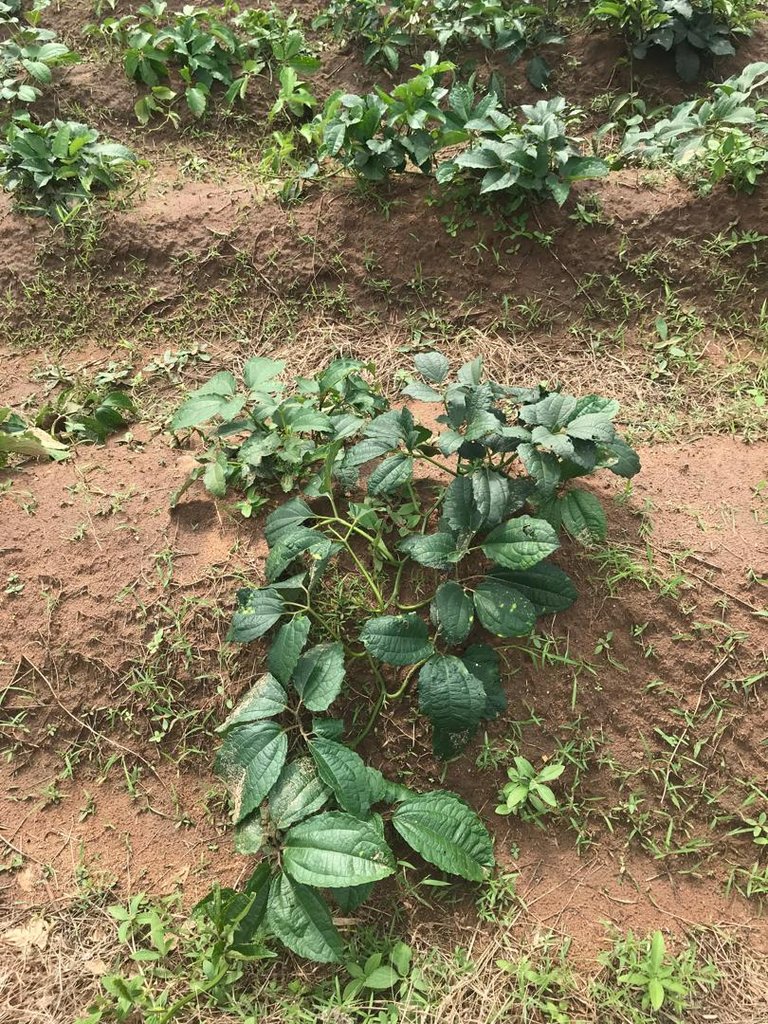
Unlike in the harvest of jute mallow, where I pull off the entire plant from the ground, for fluted pumpkins we cut off the stems and leaves every 2-3 weeks. The root is stuck in the ground and would generate new stems and leaves upon every harvest.
This way, the harvest of fluted pumpkins is done multiple times. We harvest, sell at the market, and come back to harvest again. Due to it's rich nutrient quality and ability to boost ones blood level, this veggie is the most expensive and is of high demand in the market.
My neighbors here are also equally lucky now that the stress of growing fluted pumpkin has reduced drastically and weeding can be done with herbicides that don't affect the veggies or cause them to wither.
If ever anyone wants to grow fluted pumpkins in larger quantity, all they need is to get a tractor to cultivate the land, plant the seeds manually, and that is all of the labor; the other stress of weeding can be handled with herbicides.
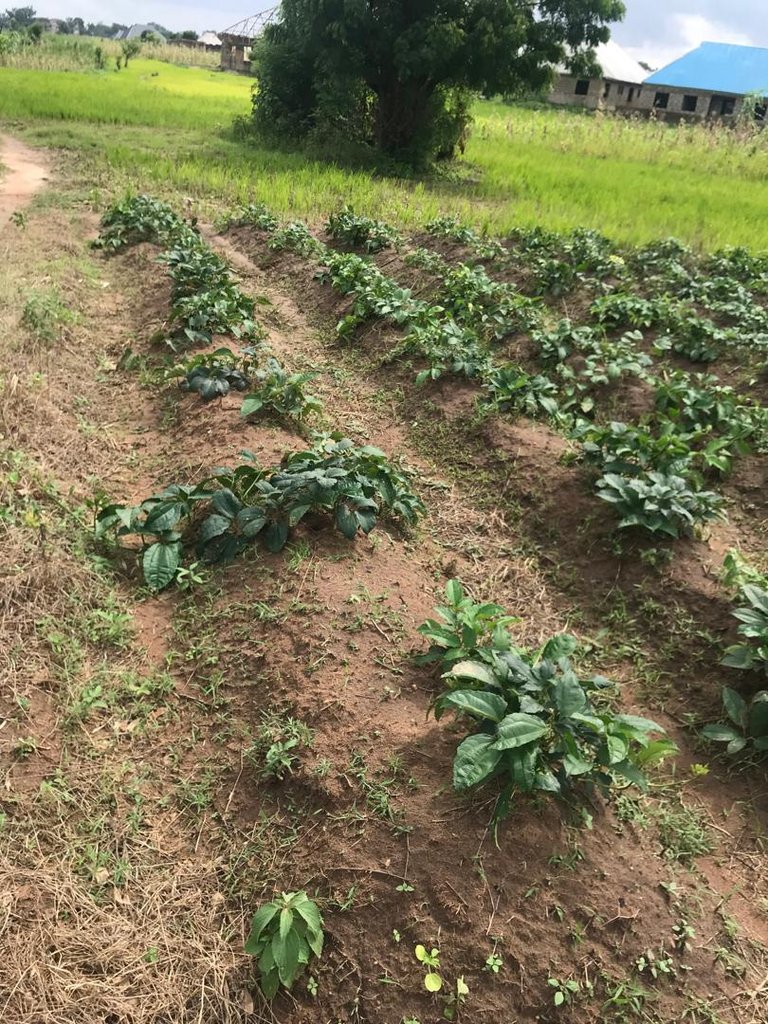
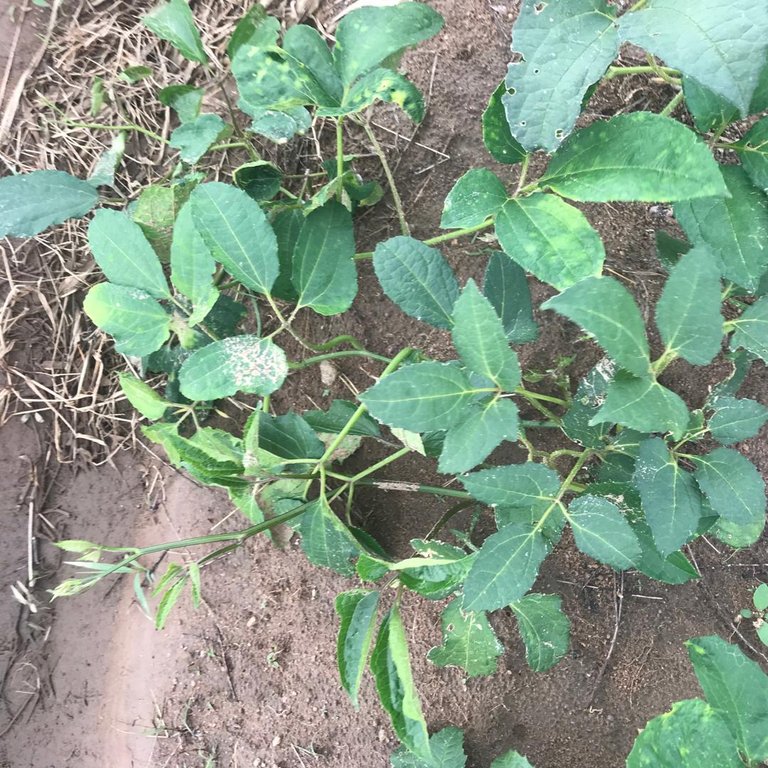
Applying herbicides before planting is also a healthier method if we do not wish that herbicides come into contact with our veggies we will be eating at all.
This is how clean and green you will have your fluted pumpkin if the soil is fertile and weeds have been controlled. Harvest can be twice in a month, bringing in a good amount of profit. For anyone willing to venture into growing veggies for business purposes, fluted pumpkins are one vegetables to consider.
Hello Hive


Most of these vegetables have a cycle span in which their leaves stay edible and healthier for food once they begin to exist, close to 3 months, and beyond they start preparing to produce seeds, and at that stage they are no longer edible for soup.
Since none of my neighbors had needs for jute mallow yesterday and the ones I planted have spent a longer time in the garden, my sister suggested that I harvest and sell them.

It sounded funny to me, but I followed her advice, plugged off the jute mallow, and had them tied like this. We had about 10 bundles of it, and guess how much that went for?
They were sold for $0.12/N200 each; selling the 10 bundles has me $1.21/N2000. My niece insisted on hawking it around the neighborhood even though this is an act I am always against and wouldn't let our children engage in it. Before she could take any steps further, we have families buy off the veggies to make their dinner with them.
The money received is quite enough for me to use in purchasing new seeds for replanting. There is literally not much profit in growing jute mallow, and I wonder how those who grow this for sale at the market make a living from it.

y
The other of my friends who are in the business of growing and selling vegetables at the market, Fluted Pumpkins, are preferable and give better income and profit. One can make a lot of profit growing fluted pumpkins. The reasons are not far-fetched.

Fluted pumpkins are not an annual crop and can last for a period of 2-3 years; the leaves regenerate upon every harvest. Meaning that harvest can be done multiple times.
While my late mom has been a fluted pumpkin farmer and has passed down that knowledge and experience to me, I have equally shared that with some of my neighbors here who are currently engaged in the fluted pumpkin business.

Unlike in the harvest of jute mallow, where I pull off the entire plant from the ground, for fluted pumpkins we cut off the stems and leaves every 2-3 weeks. The root is stuck in the ground and would generate new stems and leaves upon every harvest.
This way, the harvest of fluted pumpkins is done multiple times. We harvest, sell at the market, and come back to harvest again. Due to it's rich nutrient quality and ability to boost ones blood level, this veggie is the most expensive and is of high demand in the market.
My neighbors here are also equally lucky now that the stress of growing fluted pumpkin has reduced drastically and weeding can be done with herbicides that don't affect the veggies or cause them to wither.
If ever anyone wants to grow fluted pumpkins in larger quantity, all they need is to get a tractor to cultivate the land, plant the seeds manually, and that is all of the labor; the other stress of weeding can be handled with herbicides.


Applying herbicides before planting is also a healthier method if we do not wish that herbicides come into contact with our veggies we will be eating at all.
This is how clean and green you will have your fluted pumpkin if the soil is fertile and weeds have been controlled. Harvest can be twice in a month, bringing in a good amount of profit. For anyone willing to venture into growing veggies for business purposes, fluted pumpkins are one vegetables to consider.
Posted Using InLeo Alpha
We did learn that applying herbicides before planting is a good method from you the other day. It's nice to see you repeating that to make sure it sticks.
About the jute mallow, if it makes you feel any better, you could think of the N2000 as profit since you didn't entirely lose your crops due to its short shelf life.
If you think about it, you weren't interested in selling initially and you only had to do it to prevent wastage. So it's a win-win.
It was indeed nice to learn that fluted pumpkins are much more profitable and recommended to farmers who are out to make a profit.
Thank you for sharing ❤️